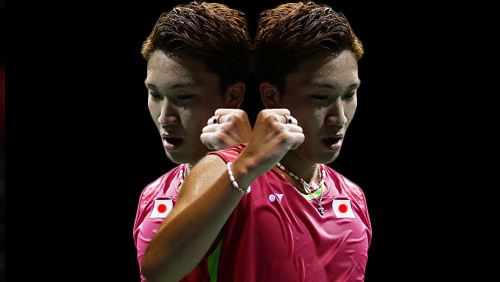Kento Momota’s indefinite playing ban is officially ending.
The Nippon Badminton Association (NBA) decided over the weekend to lift Momota’s suspension on May 15, allowing the 22-year-old former world No. 2 badminton player to compete again, the Kyodo news agency reported.
Momota missed the Rio Olympics last year after he admitted to spending time in casinos with another badminton player, 27-year-old Kenichi Tago. The association banned Momota from playing “indefinitely,” while Tago was deregistered by the association—a more severe punishment due to his more gambling habit.
 The 22-year-old’s behavior as well as his job performance with NTT East were considered by the board, who didn’t object to the lifting Momota’s ban. NBA executive director Kinji Zeniya previously said Momota has been “giving his all, and I believe he has been handed enough punishment.”
The 22-year-old’s behavior as well as his job performance with NTT East were considered by the board, who didn’t object to the lifting Momota’s ban. NBA executive director Kinji Zeniya previously said Momota has been “giving his all, and I believe he has been handed enough punishment.”
Momota’s earliest return to competition could be at a ranking tournament in Japan on May 27, according the report. He has resumed practicing after serving a 30-day ban from his club team NTT East, while also taking part in rehabilitation programs that involved community service.
In a press conference, the badminton player said he wants “to play against the best again.”
Momota said the ban taught him “moderation and being a member of society,” noting that “if you can grow in that area, you can grow further as an athlete.”
Momota, who was the first player from Japan to win a World Championship medal when he took bronze in Jakarta in 2015, has been working at training at NTT East while taking part in charity events, while Tago started playing in December in Malaysia’s Purple League.
Momota was Japan’s hope for a singles medal in the last Olympics games, but that hope was dashed when he confessed that he went with Tago to a baccarat casino in Tokyo six times—losing $4,600—through January 2015. The members-only underground casino reportedly made an estimated 100 million yen (US$915,000) in the three months that it was in operation. Authorities believe the money was a “funding source” for a local crime syndicate.





